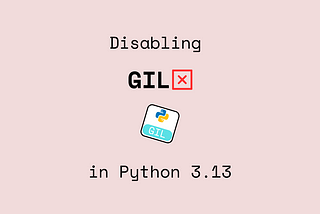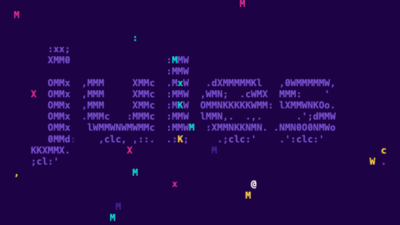The command line interface has long been the sacred space of developers—a minimalist environment where efficiency reigns supreme. Now, Google is making a significant play to transform this fundamental developer tool with the introduction of Gemini CLI, an open-source AI agent that brings conversational AI directly into the terminal.
The Strategic Context
This launch comes at a pivotal moment in the AI-powered development tools landscape. With competitors like Anthropic's Claude making significant inroads into developer workflows, Google's move to offer Gemini CLI as a free, open-source solution represents both a defensive and offensive strategy in the rapidly evolving AI assistant market.
The timing is particularly interesting given the fragmented nature of Google's AI offerings. Developers now navigate between Gemini Pro subscriptions, Google AI Studio, Vertex AI, and now Gemini Code Assist—each with different pricing models, capabilities, and access tiers. This fragmentation reflects the challenge many tech giants face when rapidly deploying AI capabilities across multiple product lines.
Technical Architecture and Capabilities
Gemini CLI distinguishes itself through several key technical features:
The tool's architecture leverages a massive 1 million token context window, enabling it to maintain awareness of large codebases and complex project structures. This technical capability addresses one of the primary limitations developers face with AI assistants—the ability to understand and work with substantial amounts of code simultaneously.
The integration with emerging standards like Model Context Protocol (MCP) suggests Google is positioning Gemini CLI not just as a standalone tool, but as part of a broader ecosystem of AI-powered development utilities.
The Open Source Gambit
Google's decision to release Gemini CLI under the Apache 2.0 license represents a significant strategic shift. By making the tool fully open source, Google enables developers to inspect the code, understand its security implications, and contribute to its development. This transparency addresses growing concerns about AI tools and data privacy—a critical consideration when developers are working with proprietary codebases.
However, this openness comes with trade-offs. Early user experiences reveal the challenges of rapid deployment in the open source space. Reports of authentication issues, rate limiting problems, and inconsistent performance suggest that the tool may have been released before reaching full maturity.
Usage Economics and Market Positioning
The pricing strategy reveals Google's aggressive approach to market penetration. Offering 60 model requests per minute and 1,000 requests per day at no charge represents one of the most generous free tiers in the AI assistant market. This approach appears designed to lower barriers to adoption and encourage developers to integrate AI assistance into their daily workflows.
Yet the complexity of Google's pricing structure creates confusion. Developers with existing Google subscriptions find themselves navigating multiple product tiers to understand what capabilities they actually have access to. This fragmentation could hinder adoption despite the generous free offerings.
Privacy and Data Considerations
The tool's integration with Google's broader AI ecosystem raises important questions about data usage and privacy. According to the terms of service, prompts, code, and generated output are collected to improve Google's products and services. Human reviewers may analyze this data, though Google states it disconnects the data from user accounts before review.
For enterprise developers working with sensitive codebases, this data collection policy presents a significant consideration. The tension between leveraging powerful AI capabilities and maintaining code confidentiality will likely shape adoption patterns across different types of organizations.
Performance in Practice
Early user feedback reveals a mixed picture of Gemini CLI's practical performance. While some developers report success with complex debugging tasks and codebase analysis, others encounter limitations when working with specific programming languages or large-scale projects. The tool's self-awareness capabilities—including its ability to recognize when it has "made a complete mess of the code" and restart—demonstrate sophisticated error handling that could improve the developer experience.
The comparison with existing tools like Claude Code reveals both strengths and weaknesses. Some users report that Gemini CLI handles larger project sizes more effectively, while others find it less capable with certain programming languages and compilation tasks.
The Future of Terminal-Based AI
Gemini CLI represents more than just another AI tool—it signals a fundamental shift in how developers might interact with their development environments. The integration of natural language processing directly into the command line could democratize access to complex development tasks, enabling developers to accomplish sophisticated operations through conversational interfaces.
The tool's extensibility through standards like MCP suggests a future where multiple AI agents could collaborate within the same development environment, each specialized for different aspects of the development workflow.
Navigating the Complexity
As AI-powered development tools proliferate, developers face an increasingly complex landscape of options, each with different strengths, limitations, and cost structures. The success of tools like Gemini CLI will ultimately depend not just on their technical capabilities, but on their ability to integrate seamlessly into existing developer workflows while maintaining transparency about data usage and privacy implications.
The challenge for Google—and the broader AI industry—is to balance rapid innovation with the stability and reliability that developers require for production work. Early releases that prioritize feature completeness over polish risk undermining developer confidence in AI-powered tools.
Conclusion: The Terminal as the New Battleground
Gemini CLI's launch marks a significant escalation in the competition for developer mindshare in the AI era. By targeting the command line—developers' most fundamental tool—Google is making a statement about the future of software development itself.
The success of this initiative will depend on execution rather than just innovation. Developers have shown they're willing to adopt AI tools that genuinely improve their productivity, but they're also quick to abandon tools that create more friction than value. As Gemini CLI evolves from preview to production-ready tool, its ability to deliver consistent, reliable assistance while respecting developer privacy and workflow preferences will determine whether it becomes an essential part of the developer toolkit or another interesting experiment in the rapidly evolving landscape of AI-powered development tools.
The terminal may be where the future of AI-assisted development is ultimately decided.







